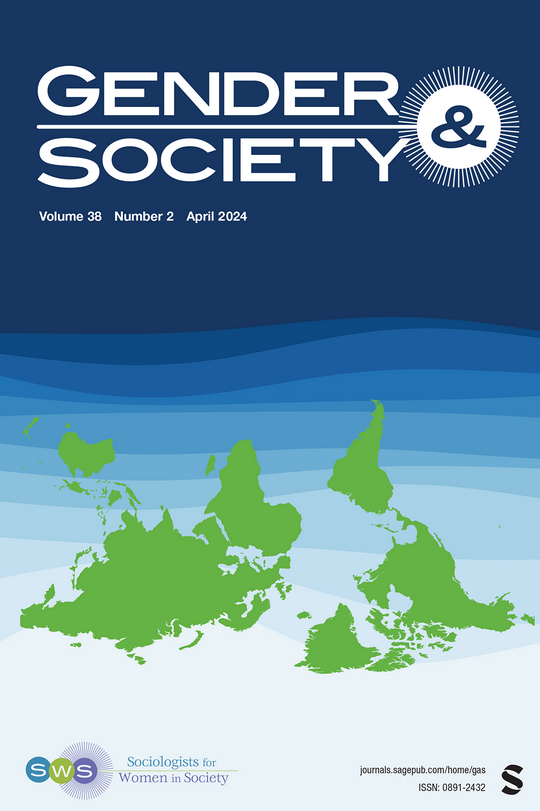认知劳动、权力和父权交易:性别变化的无形障碍
IF 7.2
1区 社会学
Q1 SOCIOLOGY
引用次数: 0
摘要
认知劳动是合伙人之间不平等的顽固根源,通常被认为是这样的,因为这项工作的性质使它对参与的人来说是“隐形的”。然而,鉴于“精神负担”的说法现在很普遍,而且疫情扩大了人们对性别差异的认识,性别学者有理由质疑它的“不可见性”。我的问题是:异性恋伴侣是否意识到认知劳动中的性别不平等?鉴于意识的增强,伴侣如何使认知劳动中的不平等合法化?是什么阻碍了伴侣在认知劳动中实现性别变化?为了回答这些问题,我利用了大流行期间从美国81名异性恋伴侣父母中收集的采访数据。我发现,认知劳动对从事它的女性来说远不是看不见的,对男性来说似乎是看不见的,只是因为他们使用抵抗策略来避免它。我认为,认知劳动的“隐形”源于两性权力动态——包括人际关系和结构——而不是工作过程本身的本质。我扩展了对维持这一领域不平等的权力动态的理解,超越了以隐藏权力为中心的典型解释。相反,我强调父权交易在一个看似棘手的性别结构中的作用,这个结构赋予了男性权力。本文章由计算机程序翻译,如有差异,请以英文原文为准。
Cognitive Labor, Power, and Patriarchal Bargains: Not-so-Invisible Barriers to Gendered Change
Cognitive labor is an obdurate source of inequality between partners, and is usually considered so because the nature of the work makes it “invisible” to those involved. Yet given that talk of the “mental load” is now widespread and the pandemic amplified awareness of disparities, gender scholars have reason to question its “invisibility.” I ask: Are partners in heterosexual relationships aware of gendered inequalities in cognitive labor? How do partners legitimate inequalities in cognitive labor, given increased awareness? What prevents partners from achieving gendered change in cognitive labor? To answer these, I draw on interview data collected during the pandemic from 81 heterosexually partnered parents in the United States. I find that cognitive labor is far from invisible to women performing it and appears invisible to men only because they use resistance strategies to avoid it. I argue that the “invisibility” of cognitive labor stems from gendered power dynamics—both interpersonal and structural—not from the nature of the work process itself. I expand understanding of the power dynamics that sustain inequalities in this domain, pushing beyond typical explanations that center hidden power. Instead, I emphasize the role of patriarchal bargains in a seemingly intractable gender structure that gives men power.
求助全文
通过发布文献求助,成功后即可免费获取论文全文。
去求助
来源期刊

Gender & Society
Multiple-
CiteScore
9.70
自引率
3.60%
发文量
78
期刊介绍:
Gender & Society promotes feminist scholarship and the social scientific study of gender. Gender & Society publishes theoretically engaged and methodologically rigorous articles that make original contributions to gender theory. The journal takes a multidisciplinary, intersectional, and global approach to gender analyses.
 求助内容:
求助内容: 应助结果提醒方式:
应助结果提醒方式:


